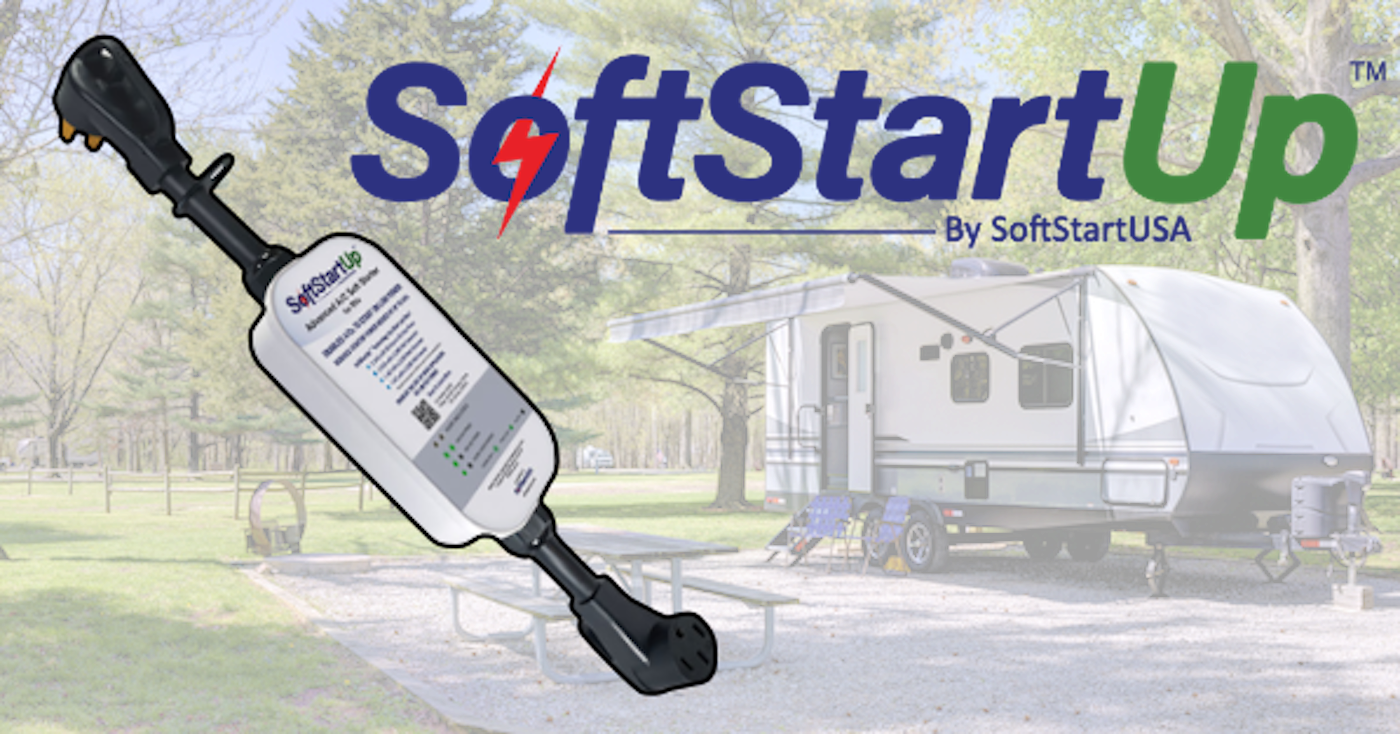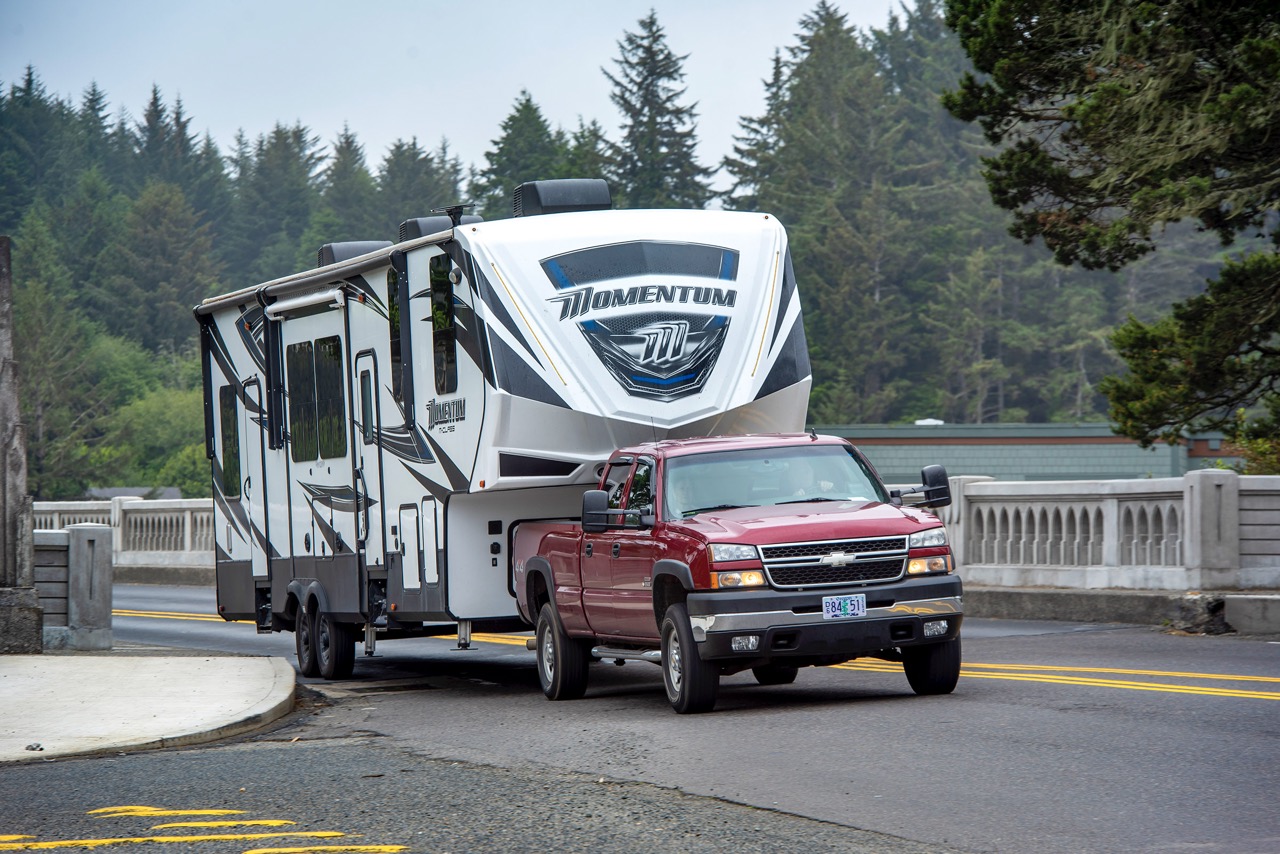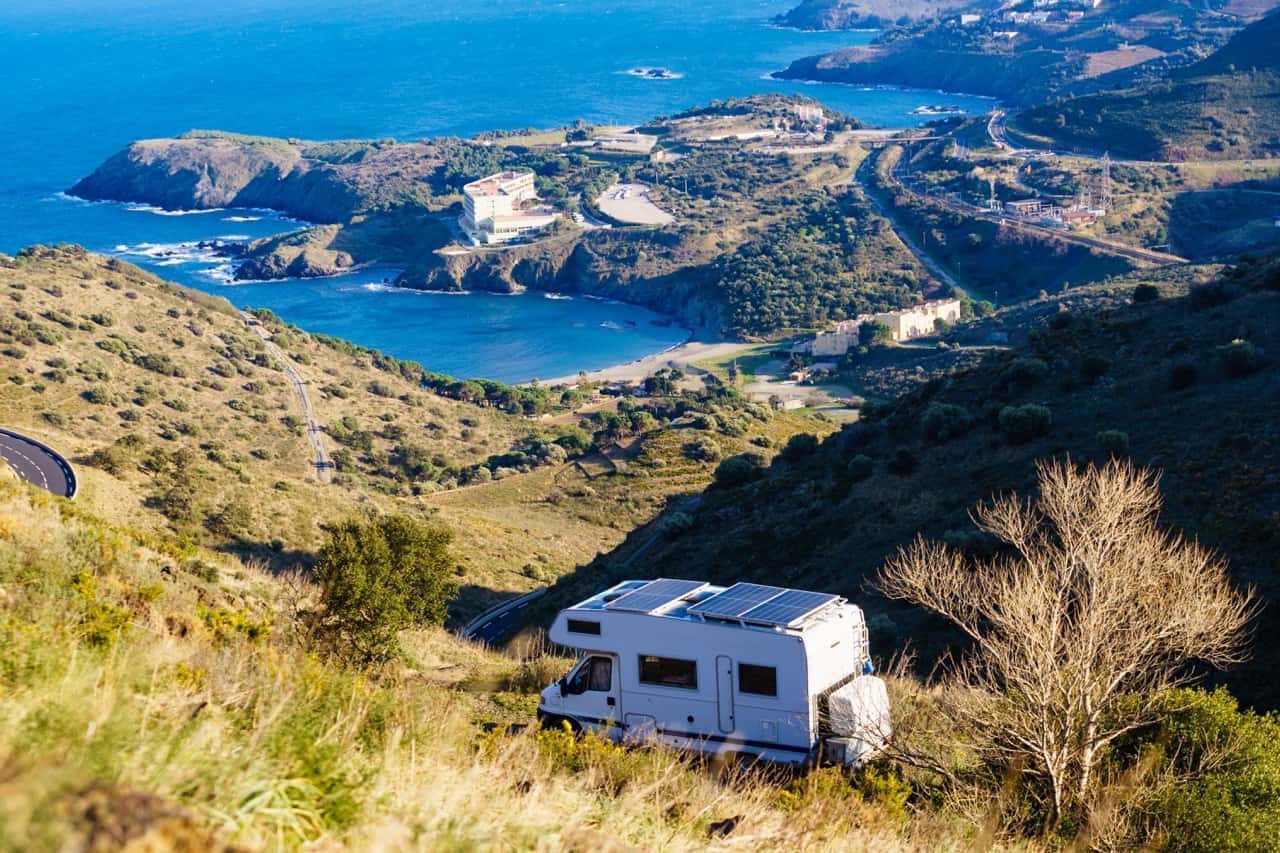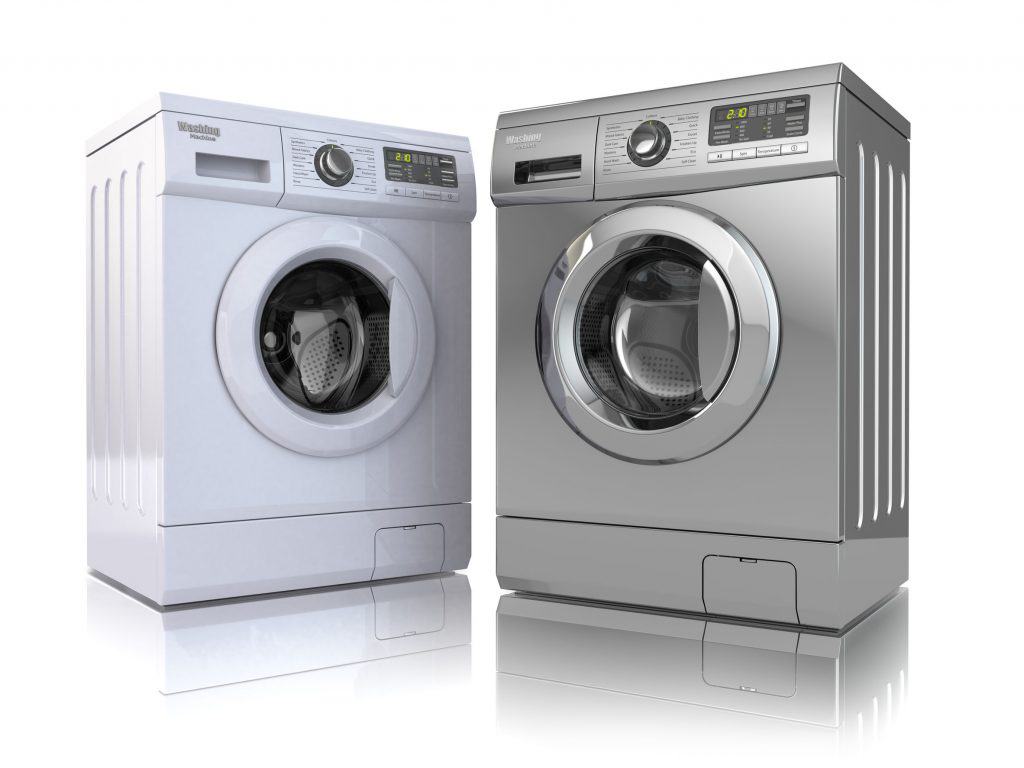
Let’s be honest: those of us who are choosing to go camping in a big fifth wheel style trailer are choosing to do so because we like to keep things easy. We like the comforts of home and we like that we can bring them all camping with us in a trailer. One comfort you might be wondering about might be the ability to wash and dry clothes!
Do most fifth wheels come with a washer and dryer? In general, fifth wheels do not come with washing machines or clothes dryers installed. There are certain models that offer this benefit, but it’s not standard. In other cases, a fifth wheel might just offer a washer or a combination washer/dryer machine
The majority of RVs don’t come with them, but if you are going to be spending a lot of time living in yours, and you don’t like doing laundry by hand, then it might be worth it for you to look into buying one.
Even if your RV didn’t come with a washer or dryer installed, many RV enthusiasts have been able to add it themselves or have a professional do it. Here, we will look at the pros and cons of using a washer/dryer in an RV, and the costs of getting one installed if you are seriously looking into getting one.
Pros and Cons of Installing a Washer And Dryer
Pros
The biggest bonus of installing a washer or dryer is that it will do your laundry for you! This will save you a lot of time if you are currently doing your laundry by hand when camping for more than just a few days.
Cons
Aside from all the great benefits of using a washer and dryer while living on the road, there are some drawbacks. The biggest one is the cost. In the case of the washer dryer combo, the machine alone can set you back around $1,100 to $1,200. The costs or time spent on doing the installation would be extra.
The cons of installing a washer and dryer are also felt by people that like to do off grid camping. Basically, that washer is going to use a lot of water every time you run it, and a fair amount of electricity too.
If you mostly use your RV in areas without plug-in water and electricity, you are probably just better off without a washer in your RV.
There is also the question of capacity. Because these washer and dryer combos were invented to save space in RVs, they don’t usually have as much capacity as you would normally find in a washer or dryer.
They generally have an 8- to 10-pound capacity. A normal household washing machine has much more than that.
For comparison, your average household washer can hold 4 cubic feet of clothes. This means that you might be bumping into that upper weight limit after adding some towels or even a few pairs of jeans.
These are all things to consider when you’re thinking about buying a washer or dryer for your RV. If these things don’t bother you, then read on.
Are Washers and Dryers Easy To Install? What About a Combo?
The answer to this question will totally depend on your RV. Some RVs will have open space for them, in others, not so much. In general though, if you want one bad enough, you can find the space!
Thankfully, someone has invented for us the washer/dryer combo! This is the most popular option for RVers and fifth wheel owners.
The washer dryer combo is a great invention for campers because it’s basically two machines in one. Since the space on board a camper is already so limited, installing a combo like this makes a lot of sense. Plus it’s cheaper to buy a combo than to buy two separate machines.
But you might be asking, “Can a washer/dryer combo even work?” The answer is, yes! The washer/dryer combo will actually wash your clothes and dry them afterward. And I will mention again, it is cheaper to buy a single combo than two separate machines.
So I would recommend looking at a combo if you are interested in an RV laundry setup, as this is what most people do.
Vented or Non-Vented?
The next thing to consider when looking at RV dryers is the classic “vented or non-vented” question.
Vented means that the dryer takes in air from outside the machine to help dry the clothes. This is what normal household dryers do. It is very effective and takes less time. In fact, you are probably thinking, “Well, I have never even heard of a non-vented dryer. Why would anyone get one?”
The answer to that question is this: that since many dryers are installed by hand, and put in a space not necessarily designed for a dryer, there is nowhere for the air to go. There is no hookup for the air coming out.
This could be very problematic as the wet air coming out of the dryer would build up inside the RV, and specifically on the walls right around the dryer.
This can cause mildew and other bad (read: expensive) problems that you definitely want to avoid.
Ventless dryers also use less energy, because less hot air is blown out into the outside world. The savings is actually about 30% less energy used!
So as you can see, it can sometimes be useful to have a drying machine that doesn’t suck in and spit out tons of wet air. This is why non-vented dryers were invented. Non-vented dryers rely on heat only to dry the clothes. They then condense the moisture from the air into a condensing tray.
Even though they are slow, and they take a lot longer to finish drying, they do work and they do work well.
So this is basically what you need to ask yourself: Do I have a vent or window through which I can route the exhaust out of the RV? If the answer to that question is yes, then a normal, classical, vented dryer would probably be your first choice.
If you do not believe that that can be done, then a non-vented dryer might be best for your situation.
Should I Install It Myself?
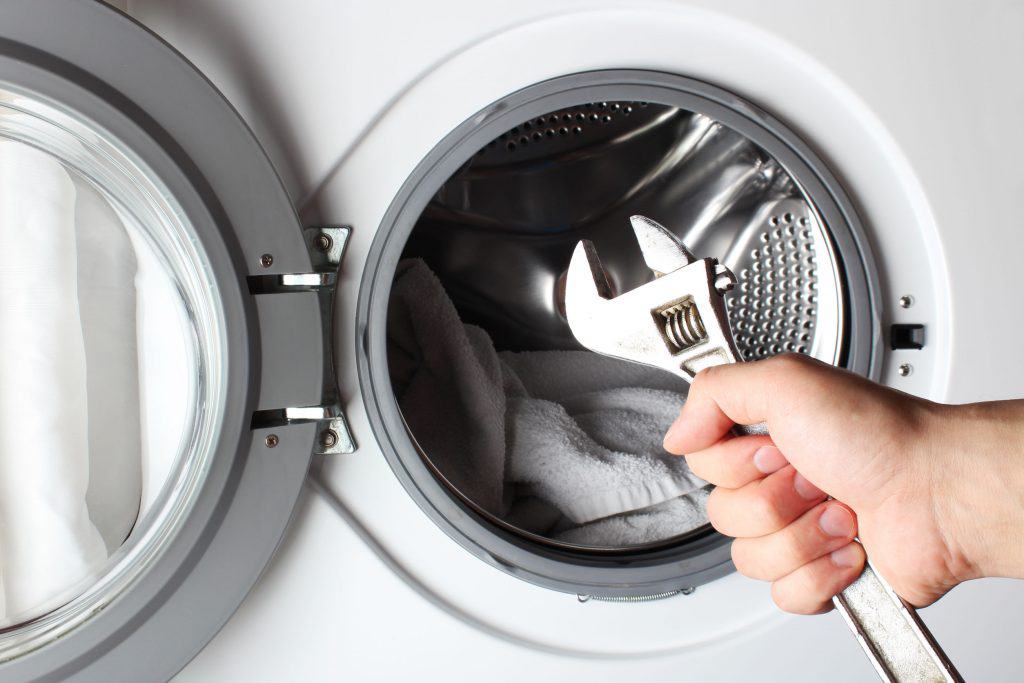
Keep in mind that you don’t have to install it yourself. If you feel confident, then go ahead, it can save you a chunk of change. But if you are not sure of your skills, then it might be best to get a washer or dryer or a washer/dryer combo installed professionally.
This can be done at your local RV store, or by a handyman. Hiring a local handyman might be a cheaper option than going to the RV dealership, because, well, you know how those guys at the dealership can be.
There is another plus to getting a dryer installed professionally: The professionals are more likely to be able to work in an exhaust tube somewhere. Remember, since this is required to use a vented dryer, this might be a better option.
If you do decide to install it yourself, remember, if it is a vented dryer, then you need to install a vent somewhere. This will involve cutting a hole in your wall somewhere.
Before you start your installation, have a plan. Really think it through before actually cutting a hole in your wall!
Your Clean Clothes
So that just about wraps it up. Since you have made it to this point in the article, I am going to throw out a guess and say that you are interested in the idea of having a washer or dryer in your trailer.
My advice now is for you to take a look around your camper. Look for space where it might work.
Also, people have filmed stories about the installation of washers in their campers on YoutTube. Those might be some good inspiration to get you going. With luck, you might be able to find someone that has installed a washer in a camper model similar to yours!
Related Questions:
Does a ventless dryer actually dry the clothes? Yes, but drying clothes in a ventless dryer takes longer than using a vented dryer. It takes air in and runs it through the clothes. The air picks up the moisture in the clothes and is routed to a condensing tray, where the water is pulled out of the air and pooled into the tray.
How long does a washer/dryer unit last? If you take good care of it, and it is a quality unit, the washer/dryer combo should last several years, maybe even around a decade.

